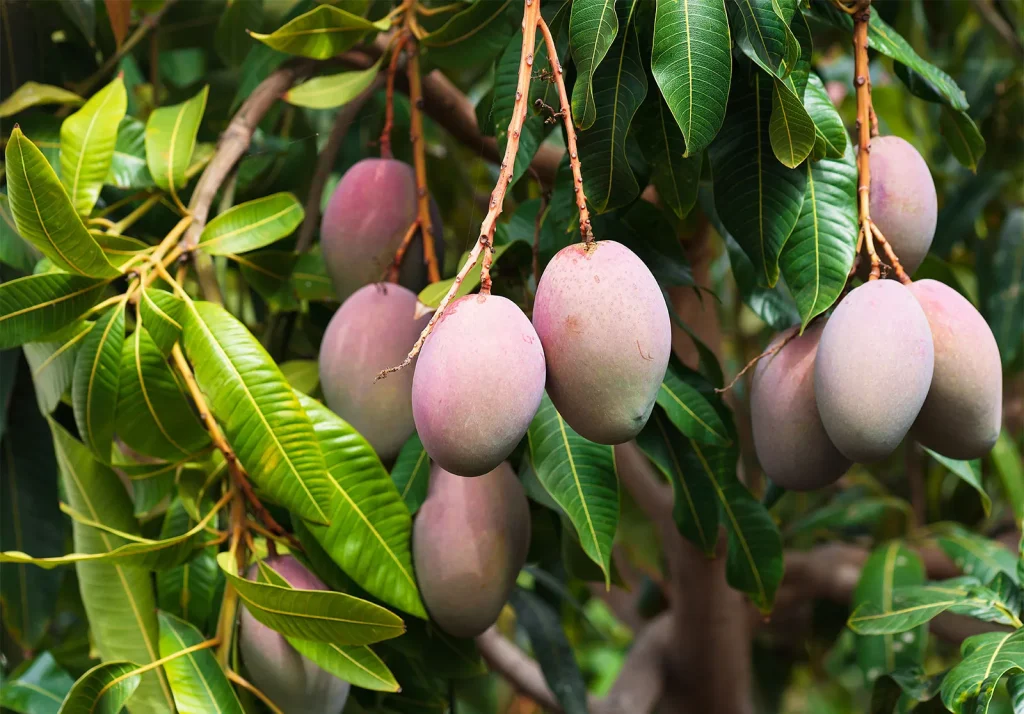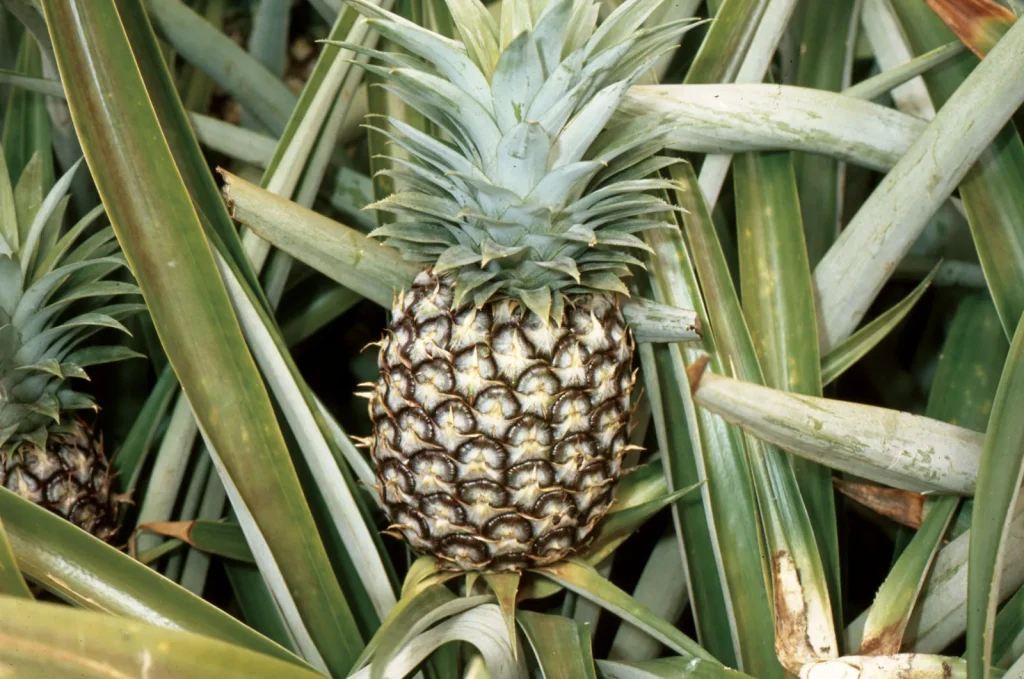When it comes to exotic fruits, jackfruit stands out with its massive size, distinct aroma, and versatility in cooking. Often dubbed as the “jack of all fruits,” this tropical wonder can weigh up to 80 pounds and grow over 3 feet long, making it the largest tree-borne fruit in the world. But there’s more to jackfruit than just its impressive appearance. It has been a staple in Asian cuisines for centuries and has recently gained popularity worldwide, particularly among vegetarians and vegans. Let’s dive deep into the history, benefits, varieties, and culinary versatility of jackfruit.
A Brief History of Jackfruit
Jackfruit (Artocarpus heterophyllus) is believed to have originated in the rainforests of the Western Ghats in India, where it has been cultivated for thousands of years. Its name is thought to be derived from the Portuguese word “jaca,” which itself was adapted from the Malayalam word “chakka.” As traders and travelers carried it across regions, jackfruit spread to Southeast Asia, Africa, and the Pacific Islands. Today, it is grown in tropical and subtropical climates around the globe, with major producers including India, Bangladesh, Thailand, and Indonesia.
Jackfruit has a deep cultural significance in many parts of Asia. In southern India, it is considered the “poor man’s fruit” because it is abundant and can be used to feed large families. Its hardy nature and ability to thrive in poor soil make it a vital crop for food security in rural areas.
Jackfruit: Nutritional Powerhouse
Jackfruit isn’t just large in size; it’s also packed with nutrients. It is rich in essential vitamins and minerals, making it a great addition to a balanced diet. Here’s what makes jackfruit a nutritional powerhouse:
1. High in Fiber
Jackfruit is an excellent source of dietary fiber, aiding in digestion and promoting gut health. The fiber content helps regulate bowel movements and can prevent constipation, making it beneficial for those with digestive issues.
2. Packed with Antioxidants
The fruit contains powerful antioxidants such as flavonoids, carotenoids, and vitamin C. These compounds help fight free radicals in the body, reducing oxidative stress and potentially lowering the risk of chronic diseases like heart disease and cancer.
3. Rich in Vitamins and Minerals
Jackfruit is a good source of several vitamins and minerals, including vitamin A, vitamin C, vitamin B6, potassium, magnesium, and iron. Vitamin C boosts the immune system, while potassium helps regulate blood pressure and maintain heart health.
4. Low in Calories and Fat
Despite its sweet taste, jackfruit is relatively low in calories and contains very little fat. This makes it a healthy snack option for those looking to manage their weight while still enjoying a satisfying and nutritious fruit.
5. High in Protein (for a Fruit)
Compared to many other fruits, jackfruit has a higher protein content. While it cannot replace high-protein foods like meat, beans, or legumes, it is an excellent option for adding plant-based protein to the diet, particularly for vegetarians and vegans.
Varieties of Jackfruit
Jackfruit comes in several varieties, each differing in size, flavor, and texture. Generally, they can be categorized into two main types:
1. Soft Jackfruit (Barka or Raspuri)
This variety has a softer, sweeter, and juicier flesh. It is often enjoyed raw and has a texture similar to that of ripe mango or melon. The soft jackfruit is aromatic and has a honey-like flavor.
2. Firm Jackfruit (Kooja or Ghila)
The firm variety has a denser, less sweet flesh. It is typically used in cooking, especially in savory dishes where its texture resembles pulled pork or chicken. The unripe version of this variety is popular in vegan and vegetarian cuisine as a meat substitute.
Health Benefits of Jackfruit
Jackfruit offers a range of health benefits due to its unique nutritional profile. Here are some of the most notable health advantages:
1. Supports Heart Health
Jackfruit’s potassium content helps regulate blood pressure, reducing the risk of heart disease and stroke. Additionally, the antioxidants in jackfruit help lower bad cholesterol (LDL) levels while increasing good cholesterol (HDL), promoting overall cardiovascular health.
2. Boosts Immunity
Vitamin C, a powerful antioxidant found in jackfruit, strengthens the immune system by stimulating the production of white blood cells. This helps the body fight infections, colds, and flu more effectively.
3. Aids in Digestion
The high fiber content in jackfruit aids digestion and promotes gut health. It helps regulate bowel movements and acts as a natural laxative, preventing constipation. The fiber also helps in reducing the risk of colon cancer by cleansing the digestive tract.
4. Helps Regulate Blood Sugar
Unripe jackfruit has a lower glycemic index than ripe jackfruit, making it a suitable option for people with diabetes. It helps stabilize blood sugar levels by slowing the absorption of sugar into the bloodstream. The fruit’s fiber content also helps prevent sudden spikes in blood glucose levels.
5. Supports Skin Health
The antioxidants in jackfruit, particularly vitamin C, help reduce signs of aging by fighting free radicals that cause skin damage. Regular consumption of jackfruit can lead to healthier, more youthful-looking skin.
Culinary Uses: A Versatile Ingredient
Jackfruit is incredibly versatile and can be used in a variety of dishes, both sweet and savory. Its unique texture and flavor make it an excellent meat substitute in vegan and vegetarian dishes. Here are some popular ways to enjoy jackfruit:
1. Young Jackfruit as a Meat Substitute
Young, unripe jackfruit is often used as a substitute for meat due to its fibrous texture, which resembles shredded chicken or pulled pork. It can be cooked in various ways, including grilling, sautéing, or baking. It is commonly used in vegan tacos, curries, stir-fries, and sandwiches.
2. Sweet Jackfruit Desserts
Ripe jackfruit is sweet and fragrant, making it perfect for desserts. It can be used in smoothies, ice creams, jams, and puddings. In Southeast Asia, it is often used in traditional sweets like Filipino “halo-halo,” a refreshing dessert made with shaved ice, fruits, and sweet syrups.
3. Jackfruit Chips
Jackfruit chips are a popular snack in many parts of Asia. They are made by slicing the fruit into thin pieces and frying or baking them until crispy. The result is a crunchy, sweet, and slightly salty treat that is perfect for snacking.
4. Jackfruit Seeds
The seeds of the jackfruit are edible and highly nutritious. They can be boiled, roasted, or used in curries. Jackfruit seeds have a nutty flavor and a texture similar to chestnuts. They are rich in protein, fiber, and essential minerals like iron and zinc.
Jackfruit in Popular Culture and Global Cuisine
Jackfruit has gained popularity in recent years as a superfood and a meat alternative in Western countries. It has become a favorite among vegans and vegetarians for its versatility and nutritional benefits. Many restaurants and food companies now feature jackfruit in their products, from ready-made pulled jackfruit sandwiches to frozen jackfruit nuggets.
In South and Southeast Asia, jackfruit is a staple ingredient in traditional dishes. In India, for example, jackfruit curry is a popular dish made with unripe jackfruit, spices, and coconut milk. In Indonesia, “gudeg” is a famous dish made from young jackfruit, cooked with coconut milk, palm sugar, and spices until tender.
Environmental Impact and Sustainability
Jackfruit is not only a nutritious and versatile fruit but also an environmentally sustainable crop. The jackfruit tree is resilient and can thrive in poor soil conditions with minimal water and fertilizers. It is naturally pest-resistant, reducing the need for chemical pesticides. This makes it an ideal crop for regions prone to drought or food insecurity.
Additionally, jackfruit has the potential to become a significant food source in the fight against climate change and hunger. Its ability to grow in harsh conditions and its high yield make it a promising crop for feeding large populations in developing countries.
Conclusion
The jackfruit is truly a remarkable fruit, not just for its size but also for its nutritional value, versatility, and cultural significance. Whether you enjoy it raw as a sweet, tropical snack or cooked as a savory meat alternative, jackfruit offers a unique and satisfying experience.
As the world becomes more conscious of plant-based eating and sustainable food sources, jackfruit’s popularity continues to rise. Its rich history, health benefits, and diverse culinary uses make it a standout fruit that deserves a place in every kitchen.
So the next time you come across this giant green fruit at the market, don’t be intimidated by its size or spiky exterior. Instead, embrace the opportunity to explore its rich, flavorful world and discover why jackfruit has been cherished for centuries in various cultures across the globe.


